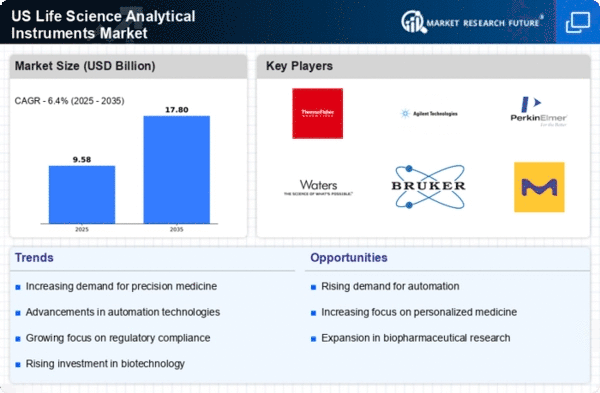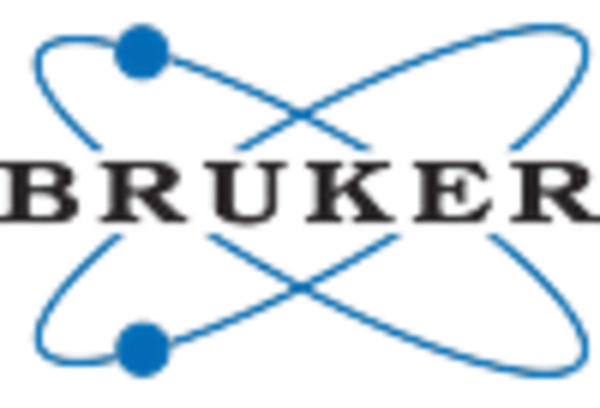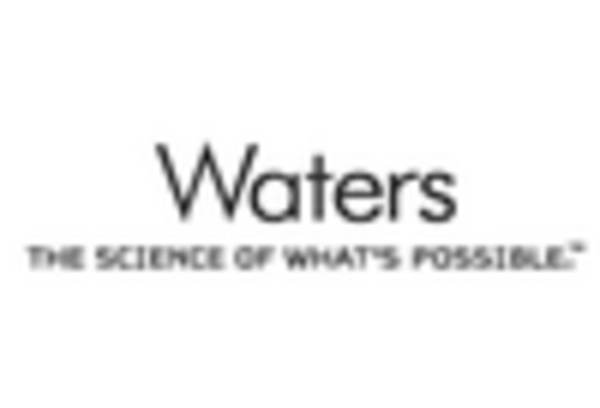Emergence of Biopharmaceuticals
The emergence of biopharmaceuticals is significantly impacting the life science-analytical-instruments market. As the biopharmaceutical sector continues to expand, there is a growing need for analytical instruments that can ensure the quality and efficacy of biologics. The biopharmaceutical market is expected to reach $500 billion by 2026, creating substantial opportunities for analytical instrument manufacturers. Instruments such as chromatography systems and mass spectrometers are essential for the characterization and quantification of biopharmaceutical products. This trend is likely to drive innovation and investment in the life science-analytical-instruments market.
Advancements in Analytical Techniques
The life science-analytical-instruments market is experiencing a surge due to advancements in analytical techniques. Innovations such as high-resolution mass spectrometry and next-generation sequencing are enhancing the accuracy and efficiency of analyses. These technologies enable researchers to obtain precise data, which is crucial for drug development and clinical diagnostics. The market for analytical instruments is projected to grow at a CAGR of approximately 7.5% from 2025 to 2030, driven by the increasing need for sophisticated analytical solutions. As laboratories adopt these advanced techniques, the demand for high-performance instruments is likely to rise, further propelling the growth of the life science-analytical-instruments market.
Growing Focus on Personalized Medicine
The shift towards personalized medicine is influencing the life science-analytical-instruments market. As healthcare providers increasingly adopt tailored treatment approaches, there is a rising demand for analytical instruments that can facilitate the analysis of individual patient data. Technologies such as genomics and proteomics are becoming integral to this trend, requiring advanced analytical solutions. The market for personalized medicine is projected to reach $2 trillion by 2030, which could lead to a corresponding increase in the demand for analytical instruments. This trend underscores the importance of innovative analytical technologies in the life science-analytical-instruments market.
Regulatory Landscape and Quality Assurance
The evolving regulatory landscape is a critical driver for the life science-analytical-instruments market. Regulatory agencies are increasingly emphasizing the need for stringent quality assurance in laboratory practices. Compliance with regulations such as Good Laboratory Practice (GLP) and Good Manufacturing Practice (GMP) necessitates the use of reliable analytical instruments. As companies strive to meet these regulatory requirements, the demand for high-quality analytical solutions is expected to rise. This focus on compliance is likely to shape the future of the life science-analytical-instruments market, as organizations invest in advanced technologies to ensure adherence to regulatory standards.
Increased Investment in Research and Development
Investment in research and development (R&D) is a key driver for the life science-analytical-instruments market. With the growing emphasis on innovation, pharmaceutical and biotechnology companies are allocating substantial budgets to R&D activities. In 2025, R&D spending in the life sciences sector is expected to exceed $200 billion in the US alone. This influx of funding is likely to stimulate demand for analytical instruments that support various research applications, including drug discovery and biomarker identification. As organizations strive to enhance their research capabilities, the life science-analytical-instruments market is poised for significant growth.
















